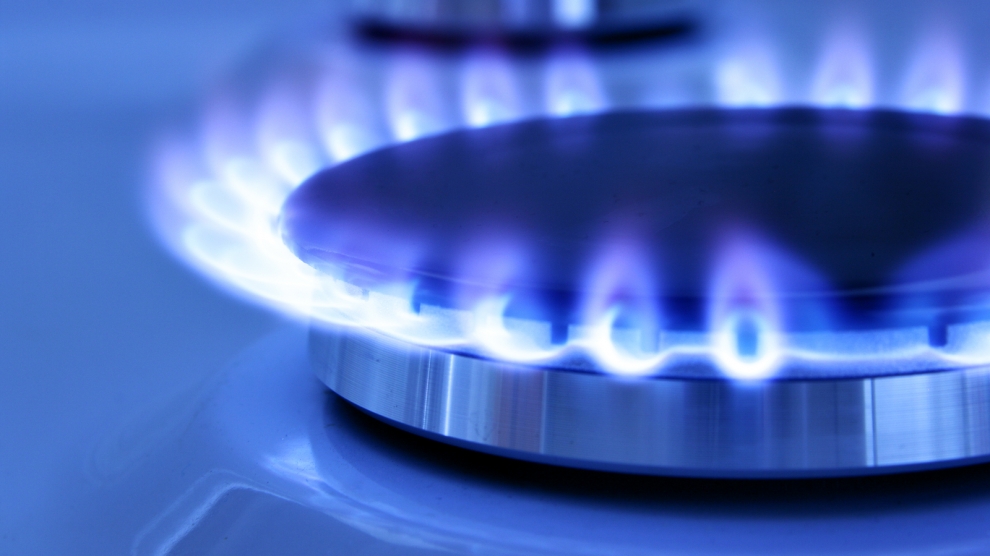With Nord Stream 2 running into new regulatory obstacles, Poland could be importing gas from Norway via the Baltic Pipe as early as October next year.
Poland took a huge step towards diversifying its energy mix away from Russian gas supplies this week with the completion of the final sea bed section of the Baltic Pipe project.
- Russian gas or defence of Ukraine? UK PM says Europe can’t have it both ways
- CEE’s energy crisis highlights the region’s over-reliance on gas
- Airlines flying migrants to Belarus could face EU bans
The pipeline, which connects Poland with Norwegian gas fields via the Baltic Sea and Denmark, will have a capacity of around 10 billion cubic metres per year, roughly equivalent the amount of gas Poland currently imports from Russia.
Poland’s current agreement with the Russian energy giant Gazprom expires next year.
Tomasz Stępień, the CEO of Gaz-System, Poland’s state-owned gas transporter, said that the underwater section had been the most demanding and that completing in on schedule was a key step towards energy security.
“Ahead of us are still some technical and reception tests. We have about a year to conduct these trials, so that we can initiate the commercial gas transfer from Norway to Poland on October 1, 2022,” said Stępień.
The project has received major backing from the European Union, which is believes to be “of common interest” and “essential to the integration of European energy networks”.
In 2019, the EU approved a 215 million euros support grant for Baltic Pipe – a joint project between Gaz-System and its Danish counterpart Energinet – the total cost of which has been estimated at anywhere from 1.6 to 2.1 billion euros.
Construction of the pipeline was briefly halted this summer after Denmark rescinded an environmental permit.
Belarusian threats
Much of Poland’s imported Russian gas currently comes through the Yamal pipepline that passes through Belarus, whose dictator Alexander Lukashenko last week threatened to disrupt gas supplies should the EU impose new sanctions on the country.
Russia’s own Nord Stream 2 pipeline, running directly from Russia to Germany beneath the Baltic is awaiting regulatory approval from Berlin and Brussels, having been completed in September. Nord Stream 2 will double Russia’s existing direct gas export capacity to Western Europe, to 110 billion cubic metres.
In July, the United States – long-opposed to Nord Stream 2 – reached a deal with Germany that allowed for its completion in exchange for heavy investment in Ukraine’s energy infrastructure and a promise to sanction Russia should it ever use the pipeline as political leverage over Europe.
On November 18, just as Baltic Pipe was clearing its key milestone, Polish Prime Minister Mateusz Morawiecki – who has also long opposed Nord Stream 2 – called on Germany to stop the project “if it wants to work for peace”.
Two days prior, Germany’s energy market regulator said in a statement that it could not certify Nord Stream 2 as an independent operator because its operator was based in Switzerland, not Germany.
“Following a thorough examination of the documentation, we concluded that it would only be possible to certify an operator of the Nord Stream 2 pipeline if that operator was organised in a legal form under German law,” the German regulator said.
Russian gas or defence of Ukraine
The news sent Europe’s benchmark for natural gas prices soaring to a monthly high of 95.16 euros per megawatt-hour (MWh), almost ten times the price of a year ago.
On November 15, the United Kingdom’s prime minister, Boris Johnson, said that the European Union will need to make a choice between Russian gas supplies and defending Ukraine’s territorial integrity.
Speaking at the Lord Mayor’s Banquet in London, Johnson said that a choice was shortly coming, “between mainlining ever more Russian hydrocarbons in giant new pipelines, and sticking up for Ukraine and championing the cause of peace and stability”.
Johnson added that it was clear some countries “are simply not going to evolve towards free market democracies” and that the UK “should be clear eyed about that”.
“We have to deal with it, we have to manage it, we must have relations that are as friendly and pragmatic as possible.
“But the consequence is that we work ever more closely with those who do share our values and instincts,” he said.
Ukraine is set to lose out on around two billion US dollars per year in transfer fees should Nord Stream 2, built at a cost of 9.5 billion US dollars, become fully operational.
Unlike many news and information platforms, Emerging Europe is free to read, and always will be. There is no paywall here. We are independent, not affiliated with nor representing any political party or business organisation. We want the very best for emerging Europe, nothing more, nothing less. Your support will help us continue to spread the word about this amazing region.
You can contribute here. Thank you.








Add Comment